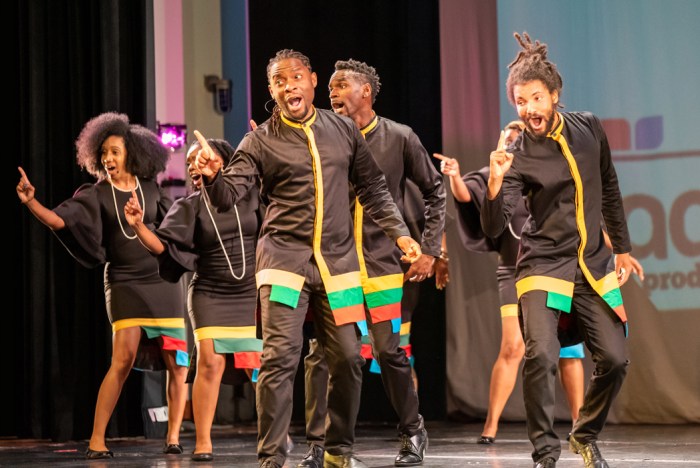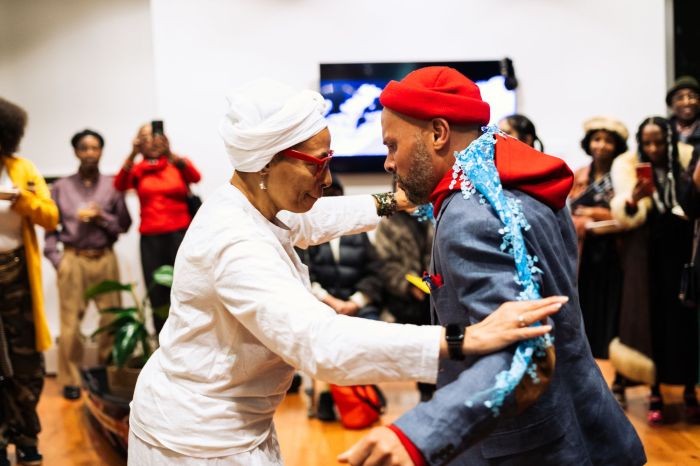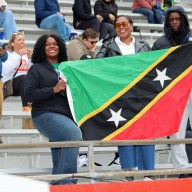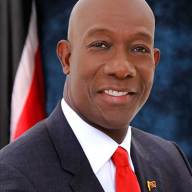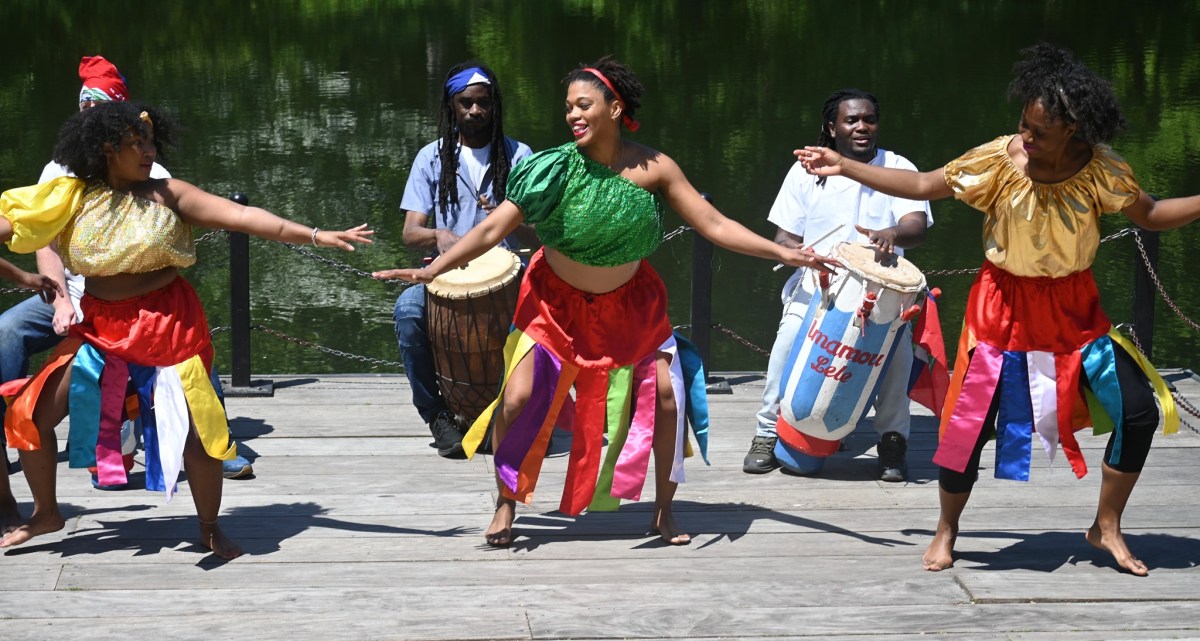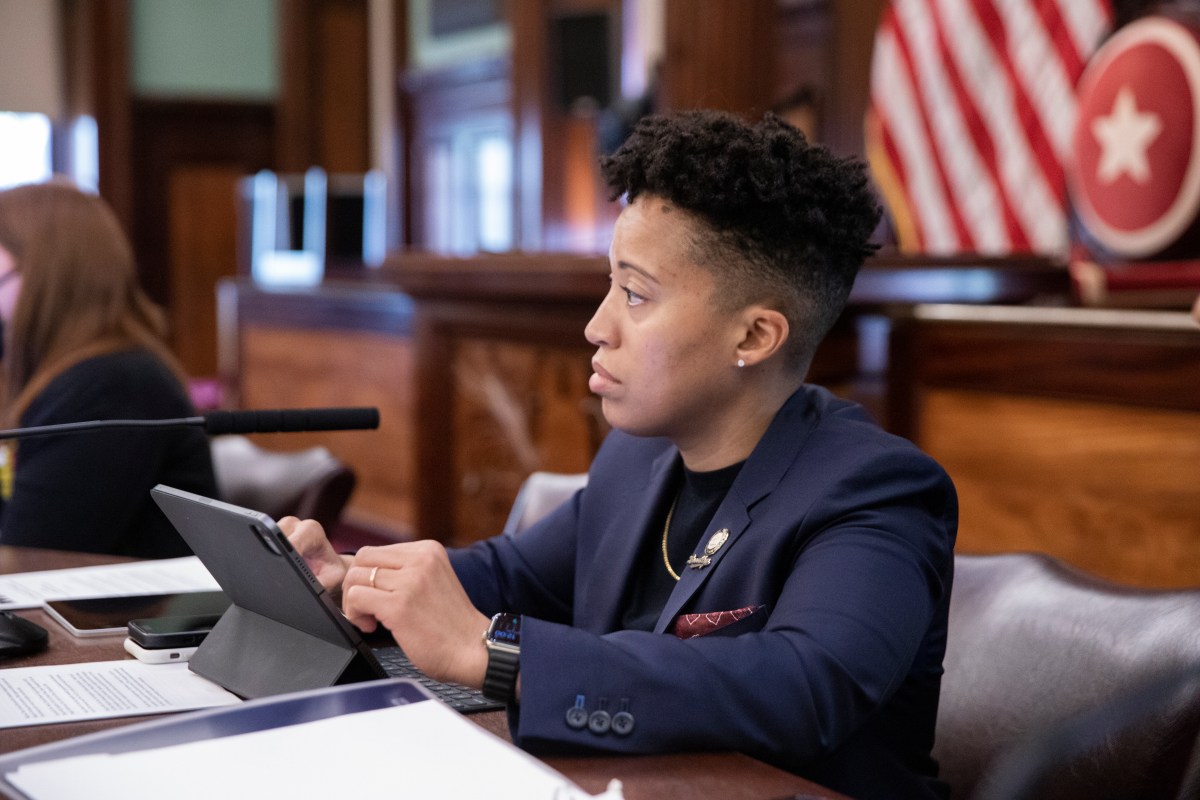Back in her heyday, Gail Devers stood out almost as much for her flashy fingernails as her dazzling finishes.
Those brightly colored, long and looping nails were eye-catching, just like the performances of the American women in the 100 meters at that time.
Between Devers, Florence Griffith-Joyner and Evelyn Ashford, along with Marion Jones, who later admitted to doping, the U.S. governed track’s signature event for nearly two decades.
That supremacy has slipped.
These days, the balance of power has shifted to Jamaica, leaving the Americans to play catch-up. The small Caribbean island is producing some big-time sprinters who have taken center stage at track’s premier events.
And unlike men’s sprinting with Usain Bolt, no one runner is head and shoulders above the rest.
Sure, Shelly-Ann Fraser-Pryce won the 100 at the 2008 Beijing Olympics, leading Jamaica’s sweep of the medals, and followed that up by taking gold at worlds the next season.
But a fleet of fast Jamaicans can step up at any given race. When top Jamaican sprinters such as Veronica Campbell-Brown, Sherone Simpson, Kerron Stewart and Fraser-Pryce step into the blocks at worlds in Daegu, South Korea, this summer, they, not the Americans, will be the favorites.
In Devers’ opinion, this role reversal is just a trend.
When Devers was first coming up, it was the Americans chasing the Europeans and Russians, with many in track circles believing that group of sprinters would never be caught.
The U.S. women eventually tracked them down and went on to capture five straight Olympic 100-meter gold medals from 1984 to 2000, including one in Sydney that Jones surrendered because of doping.
“The Jamaicans have simply figured it out right now, got tired of being the bridesmaid, wanted to be the bride,” said Devers, who ran in an epic 100 against Jamaica’s Merlene Ottey at the ‘96 Summer Games in Atlanta, winning in a tight finish. “Everyone has their season.”
With the 2012 London Games looming on the horizon, the Americans are attempting to wrestle the dominance back. Newly named Olympic track coach Amy Deem doesn’t think her squad is far behind the Jamaicans, especially with a blend of veterans such as Carmelita Jeter and up-and-comers like Alexandria Anderson, the 2009 NCAA champion in the 100.
The American 100-meter hopefuls will assemble at the U.S. championships that begin Thursday in Eugene, Ore., to earn a place at worlds and the right to face the formidable Jamaicans.
“I don’t think anybody in the 100 is significantly better,” Deem said. “From what I’ve seen, anybody is beatable in that race.”
That’s the thing: There really is no Bolt-like figure, someone who’s running away from the field. Despite winning at the Olympics and worlds, Fraser-Pryce isn’t shattering world marks like her fellow Jamaican.
In fact, it’s Jeter who’s making a run at the top marks. She has the fastest time of this era, clocking 10.64 seconds in 2009 to become the second-fastest woman in the history of the 100. Only the late Griffith-Joyner ran faster (10.49).
To Jeter, this isn’t so much a rivalry with the Jamaicans as the spark to sprint even faster.
“It’s very good for the sport; it’s very good for women’s sprints and I hope it continues to bring more financial and media and TV and everything to the women’s sprints,” Jeter said. “We’re lacking a little bit because everyone always wants to see the men, but we’re running fast and just as hard.”
The 24-year-old Fraser-Pryce, coming off a six-month ban for using the painkiller oxycodone when she had a toothache, is eager to establish herself again and defend her title at worlds. Before her, Campbell-Brown captured the 100 crown at worlds in ‘07.
“We’ve always had Jamaicans doing great things, but now we’re getting recognized,” Fraser-Pryce said. “It’s long overdue.”
Bolt, for one, isn’t surprised by his country’s rise in sprinting, whether it’s on the men’s or women’s side.
Track is simply woven into the fabric of the island.
“I think it is all about where the talent is from,” Bolt said in a recent news conference held by his sponsor, Puma. “The majority of Europe is very much switched onto football. The USA is NFL, MLB and basketball; Canada is ice hockey.
“Jamaica is sprinting — we do a lot of track and field here. … Yes, there is cricket and football, but the majority of Jamaicans want to do track and field.”
The U.S. has shown a resurgence this spring. Marshevet Myers won at the Adidas Grand Prix last weekend in New York against an abbreviated field.
The week before, Jeter captured the Prefontaine Classic in 10.70, a time that leads the world this season, while Myers finished second, holding off Jamaicans Stewart, Fraser-Pryce and Simpson.
But it’s early and hardly anything can be read into the results at this point. Sprinters are still fine-tuning their training while they work toward being in supreme shape for worlds.


